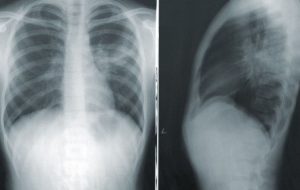Caring for a child’s teeth can be challenge, but more so if they have special needs. This is because they often have difficulty sitting still, cooperating, and understanding instructions. But if you’re a parent of a child with special needs, don’t despair. There are ways that you can help make sure your child’s teeth and gums stay healthy.
Here are four dental care tips for parents of kids with special needs:
Introduce Them to the Dentist Early On
Every parent must ensure their kids get professional care from a pediatric dentist as soon as possible. This is since kids have different dental needs compared to adults, and they would require special handling. The best and earliest time you can take your child to see the dentist is within six months after their first tooth erupted or on their first birthday.
A pediatric dentist is someone with years of specialized training in caring for children’s teeth. They know how to make your child feel more comfortable during their appointment and can provide you with tips on how to care for your child’s teeth at home. They can even give you the best advice on dealing with your child’s unique dental challenges.
For instance, your daughter may have difficulty opening her mouth wide. In this case, the dentist can recommend specific exercises that will help her stretch the muscles in her face. Or, if your son has a hard time sitting still, the dentist can adjust the length of his appointment or use special equipment to help him stay still.
The earlier you take your child to see a dentist, the better. This is because it can help prevent dental problems from developing or worsening. It can also help your child get used to the dentist, making future appointments easier.
When choosing a dentist for your child with special needs, consider their experience treating children with similar conditions. You may also want to ask for referrals from other parents or your child’s doctor. Finding a trusted dentist specializing in kid’s dental care services makes sense to give your child the best care possible.
Encourage Regular Brushing and Flossing
According to experts, parents should brush their kid’s teeth twice with a fluoride toothpaste daily as soon as they get their first tooth. You can help make brushing and flossing more fun for your kids by letting them pick out their own toothbrushes and toothpaste. There are even battery-operated toothbrushes and toothpaste in different flavors that your kids will love.
Help them brush their teeth until they are old and able to do it themselves. This is usually around age six or seven. But even when they can brush their teeth on their own, supervise and teach them how to do it correctly.

It is also important to floss your child’s teeth once a day as soon as they have two teeth touching each other. You can use regular floss or a child-size toothbrush with built-in flossers. Help them floss their teeth until they are old enough to do it alone.
Make the activity more fun by singing their favorite songs while brushing or letting them choose a reward system after brushing their teeth. For instance, you can let them pick a sticker for their toothbrush after brushing.
Avoid Giving Them Sugary Drinks and Snacks
According to a study, tooth decay is more prevalent in kids with special needs (75.9%) than kids without special needs (65.8). This is because they often cannot brush their teeth after every meal and snack.
One of the best ways to protect your child’s teeth is to avoid giving them sugary drinks and
Sugar can cause cavities. By avoiding giving your kids sugary drinks and snacks, you reduce their risk of developing cavities. If you give them sugary snacks, brush their teeth right after, or provide them with water to drink.
Water is the best drink for their teeth and gums. But if they must have juice, give them 100 percent fruit juice at mealtime. Avoid putting them to bed with a bottle of juice or milk as this can cause tooth decay.
Teeth decay caused by milk is baby bottle tooth decay. It can cause pain and infection and even lead to the loss of teeth. If your child does need a bedtime drink, give them water instead of milk or juice.
It helps explain to them why sugary drinks and snacks are bad for their teeth. You can even show them pictures of cavities or other dental problems caused by sugar.
Keep an Eye Out for Changes in Their Teeth or Gums
Check your child’s teeth and gums regularly for any changes. This is because some dental problems can develop without pain or other symptoms.
Look for things like white spots, which could be a sign of cavities. Signs of gum disease include red or swollen gums, bleeding gums, or bad breath. If you notice any changes, make an appointment with their dentist immediately.
You should also take them to the dentist asap if they have a toothache, chipped tooth, or anything else that seems unusual. This will help you catch problems early and be able to treat them before they get worse.
Kids with special needs require their parent’s extra special attention to ensure they receive the best dental care possible. By following these four tips, you can help keep your child’s teeth and gums healthy for years to come.

















